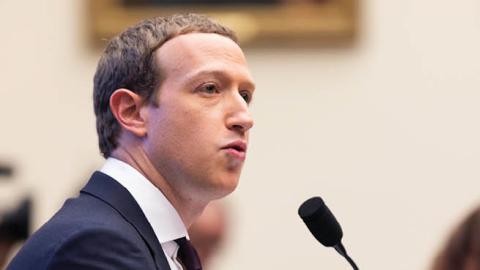Soon, America will celebrate the 25th anniversary of the Telecommunications Act of 1996. That year is a distant memory for those in the communications technology world. But thanks to recent discourse, many question whether there will even be another anniversary for the 1996 law.
In 1996, the Internet was in its infancy, and so too were wireless services. As for social media, forget Twitter or TikTok; MySpace and even AOL Instant Messenger were but glimmers in their founders’ eyes. Users searched the Web via Yahoo, Lycos, and Excite, not Google. Current titans of industry—Facebook, Apple, Amazon, and so on—either did not exist or were much smaller players compared to today. Their growth and that of the American economy is in no small part a result of the Telecommunications Act of 1996, which opened communications markets to competition that had previously been proscribed.
Part of this growth—in particular, the rise of user-generated content and social media—is specifically attributable to Section 230 of the Act. Section 230 provides a safe harbor from tort claims brought against Internet companies for content supplied by third parties. In other words, if someone posts a review of a restaurant on Facebook saying that the food is lousy, the restaurant owner can sue the reviewer, but not Facebook. Section 230 also allows grants legal immunity to Internet companies that wish to block or remove certain types of content, including “objectionable” content.
When the 1996 Act passed, few observers would have thought that Section 230 would have any long-lasting or profound effects. But thanks in part to Section 230’s legal protections, Silicon Valley companies have innovated and developed beneficial new technologies and services. They have brought a wealth of news, entertainment, commerce, and connectedness to consumers in the United States and around the world. As a result, these companies have grown to become the largest companies in the world.
On average, Twitter users post more than 500 million tweets per day. Facebook users view more than 4 billion videos per day. Google facilitates more than 5.6 billion searches per day. These are extraordinary activities unimaginable just 25 years ago.
Despite assertions to the contrary, Section 230’s liability protections are limited. Section 230 does not provide Internet companies with unlimited immunity to otherwise unlawful activities. It is not a get-out-jail-free card. If certain conditions are met, Section 230 provides protection from only some types of lawsuits. But it does not protect Internet companies from engaging in outright unlawful activities.
In recent days, several of America’s leading Internet companies have conducted wide sweeps, limiting or even permanently disabling many Americans from accessing or posting to their sites. There is scant historical precedent for this. Specifically—under Section 230, Internet companies enjoy legal immunity when they block objectionable content. But it’s not entirely clear that that this immunity does or should apply when companies block speakers outright and ex ante, regardless of the content that may have followed. Such blocking may be permissible under the terms of use offered by the Internet company as a purely contractual matter. And of course, the government cannot compel private speech as a First Amendment matter. But whether Section 230 will shield companies from a tort complaint for blocking individuals rather than content is for the courts to decide. And court cases are almost certain to follow.
It is tempting to frame disputes involving America’s Internet companies in political terms. Over the past 25 years, practically every Internet company has been accused of supporting one political party or another, and often different political parties. But in assessing any matter, courts should avoid decisions based on political viewpoints. The questions courts will be asked to resolve involve adherence to the law. Are the actions of Internet companies lawful under the Telecommunications Act of 1996? Are they lawful under relevant contracts? Are they lawful under the First Amendment?
Businesses, their officers, and their employees are certainly allowed to have political viewpoints, and those viewpoints are being expressed on both the political Left and the Right to rewrite Section 230. Perhaps it will be rewritten, but more likely, it will remain as it is. That has been the fate for 25 years of practically all of the Telecommunications Act of 1996. In Washington, it takes something close to a miracle for laws to actually change.
Twenty-five years ago, Washington was paralyzed in many ways, including government shutdowns. The Capitol building was closed to the public not because of riots, but because the government was closed for business. The President and Congress held each other in mutual, seething contempt. Two years later, Congress would impeach the President.
Despite deep political divisions, Congress passed the Telecommunications Act of 1996 with roughly 90 percent bipartisan support. On February 8, 1996, members of both parties met at the Library of Congress for a signing ceremony. In the crucible of politics emerged a powerful new law that would profoundly affect the nation.
Now, 25 years later, we are a much wealthier country. The Internet, partly as a result of Section 230, now dominates our lives, our work, our education, and our politics. While it has come under fire from both sides of the political aisle, there does not appear to be a coherent, unified consensus to rewrite Section 230, much less all of the Telecommunications Act of 1996.
America is, has been, and always will be a nation dedicated to the rule of law. Our laws relating to the Internet, such as Section 230, are not perfect, but they are all we have. They are not likely to change soon. And it is left to the courts to interpret them as they are written.
Read in RealClear Markets
















